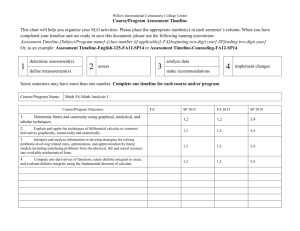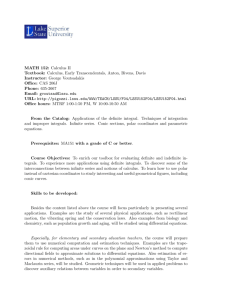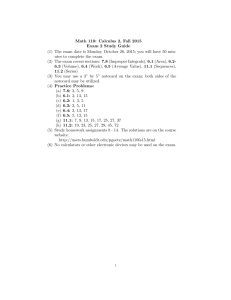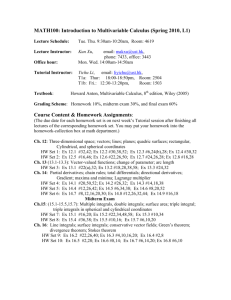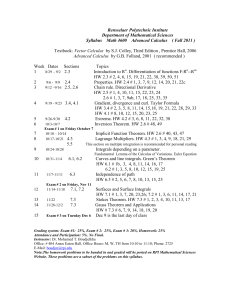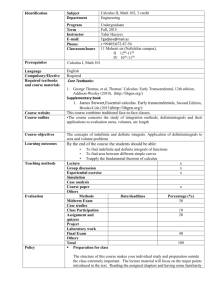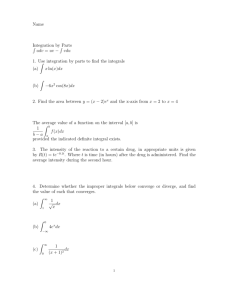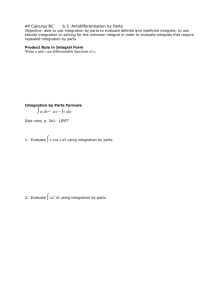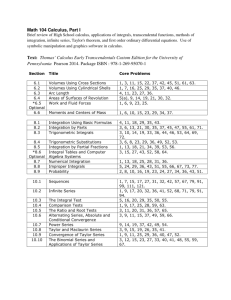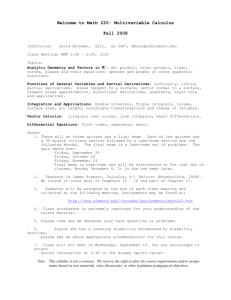MAT 272 Course Plan
advertisement
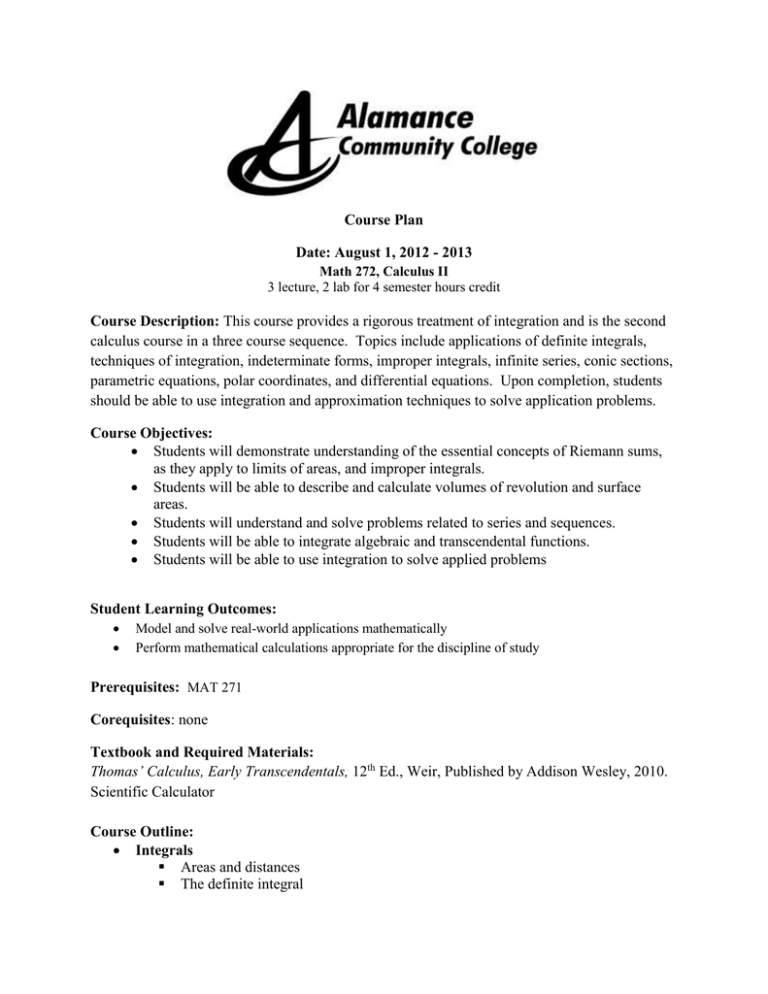
Course Plan Date: August 1, 2012 - 2013 Math 272, Calculus II 3 lecture, 2 lab for 4 semester hours credit Course Description: This course provides a rigorous treatment of integration and is the second calculus course in a three course sequence. Topics include applications of definite integrals, techniques of integration, indeterminate forms, improper integrals, infinite series, conic sections, parametric equations, polar coordinates, and differential equations. Upon completion, students should be able to use integration and approximation techniques to solve application problems. Course Objectives: Students will demonstrate understanding of the essential concepts of Riemann sums, as they apply to limits of areas, and improper integrals. Students will be able to describe and calculate volumes of revolution and surface areas. Students will understand and solve problems related to series and sequences. Students will be able to integrate algebraic and transcendental functions. Students will be able to use integration to solve applied problems Student Learning Outcomes: Model and solve real-world applications mathematically Perform mathematical calculations appropriate for the discipline of study Prerequisites: MAT 271 Corequisites: none Textbook and Required Materials: Thomas’ Calculus, Early Transcendentals, 12th Ed., Weir, Published by Addison Wesley, 2010. Scientific Calculator Course Outline: Integrals Areas and distances The definite integral Evaluating definite integrals The fundamental theorem of calculus The substitution rule Integration by parts Additional techniques of integration Integration using tables and computer algebra systems Approximate integration Improper integrals Applications of integration More about areas Volumes Arc length Average value of a function Applications to physics and engineering Applications to economics and biology Probability Grading Policy: Grading policies will be included in the syllabus and distributed to all students at the beginning of each semester. In all curriculum math courses the grading scale is the same: A = 100-90, B = 89-80, C = 79-70, D = 69-60, F = 59 - 0. Disability Services: Alamance Community College is committed to providing equal educational opportunities for students with documented disabilities. Students who require disability services or reasonable accommodations must identify themselves as having a disability and provide current diagnostic documentation to the Disability Services Office located in the Gee Building, Room 128. All information is confidential. Please contact Monica Isbell, Coordinator of Special Needs & Counseling Services for more information at 336-506-4130 or email at isbellm@alamancecc.edu. Student Access to Faculty: Instructors will provide students with a written syllabus that includes their name, office number, telephone number, e-mail address and office hours. Attendance Policy: The standard ACC attendance policy will be followed (see the ACC Student Handbook for details.) The attendance policy may be modified by departments as approved by the Associate Dean. The specific attendance policy for this course will be provided in the syllabus. Academic Integrity: Students should review the Student Code of Conduct section of the Student Handbook. Course Evaluation: This course will be regularly evaluated in accordance with college policy. Endorsement of the Department Head and Associate Dean Department Head: Sonya McCook Date: August 1, 2012 Associate Dean: Cathy Johnson Date: August 1, 2012
